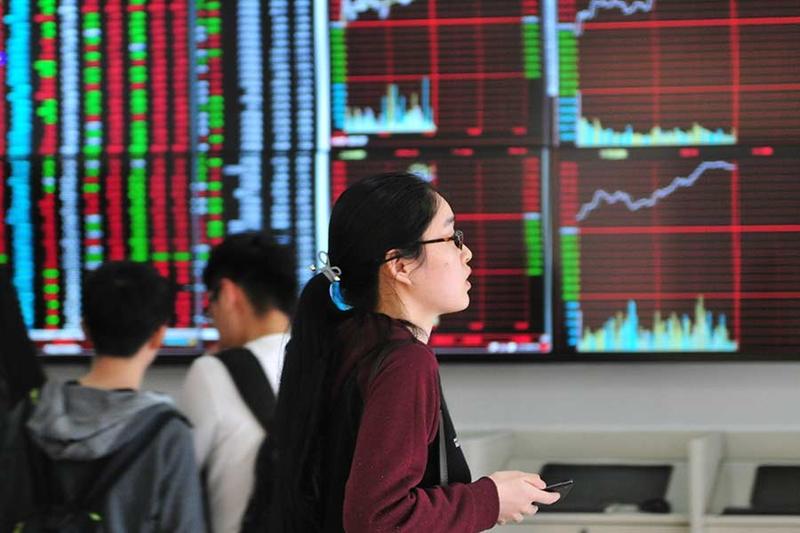 An investor checks stock prices at a brokerage in Shenyang, capital of Liaoning province. (PHOTO PROVIDED TO CHINA DAILY)
An investor checks stock prices at a brokerage in Shenyang, capital of Liaoning province. (PHOTO PROVIDED TO CHINA DAILY)
A sound development of the Chinese capital market is conducive to the creation of a high-standard market system, regulators said in a new action plan released over the weekend.
The General Office of the Communist Party of China Central Committee and the General Office of the State Council released on Sunday an action plan to build a high-standard market system. While stating the general objective of building a market system that is unified, open, competitive, highly regulated and soundly governed, the plan specified four detailed tasks that aim to promote healthy development of China's capital market.
While stating the general objective of building a market system that is unified, open, competitive, highly regulated and soundly governed, the plan by the General Office of the Communist Party of China Central Committee and the General Office of the State Council specified four detailed targets that aim to promote the healthy development of China's capital market
The registration-based initial public offering mechanism should be steadily promoted to a wider scope, according to the action plan. Further trials of the mechanism should be evaluated and perfected while sticking to the ground rule of information disclosure.
Yang Delong, chief economist at First Seafront Fund, said the registration-based IPO mechanism, which was first experimented at the technology-focused STAR Market at the Shanghai bourse and promoted to ChiNext in Shenzhen in July, provides the opportunity for many technology innovative companies to go public and seek financing. In the long-term, companies with true value will be more favored and the investment style in the A-share market hwill thus grow more mature.
The action plan also emphasized that the "hard technology" feature of the STAR Market should be further underscored.
Zhao Haizhou, associate partner at Deloitte East China A-share department, said the listing rules at the STAR Market are already attractive to "hard technology" companies, which used to find it difficult to obtain financing from banks due to their smaller asset values.
"The amount of preliminary investment in them is huge, but is unlikely to be returned in a decade. Investors, on the other hand, will not miss the opportunity in rising technology companies," he said.
ALSO READ: Beijing proves big draw for high-end technology enterprises
A stricter and normalized delisting mechanism should be established, said the action plan. The procedure should be simplified while the delisting ways should be further smoothed.
Gui Haoming, chief analyst of Shenwan Hongyuan Securities, said companies that have seen their prices fall below book value and had reported poor performance must be required to delist. Only in this way can the market see the real expansion of companies that guarantees better regulation, information transparency and growth potential.
"We have also seen a number of companies listed on the A-share market demonstrating low liquidity and reporting limited trading value every day. This does not help in the sustained development of the market. But delisting policies will surely be further optimized and adjusted based on real cases," he said.
Institutional investors should be nurtured in the Chinese capital market, said the action plan. To be specific, more banks' wealth management subsidiaries and insurers' asset management companies should be set up. Long-term capital such as pension funds and insurance should increase their proportion in equity investment products.
READ MORE: Insurer ownership curbs to be eased
Yao Shangkun, founder of venture capital Guo Xiong Capital, said institutional investors have expanded noticeably in the A-share market over the past few years. These investors, both domestic and overseas, value companies' quality the most. Under such circumstances, the gap between good-quality companies and underperforming ones will be further widened, he said.


